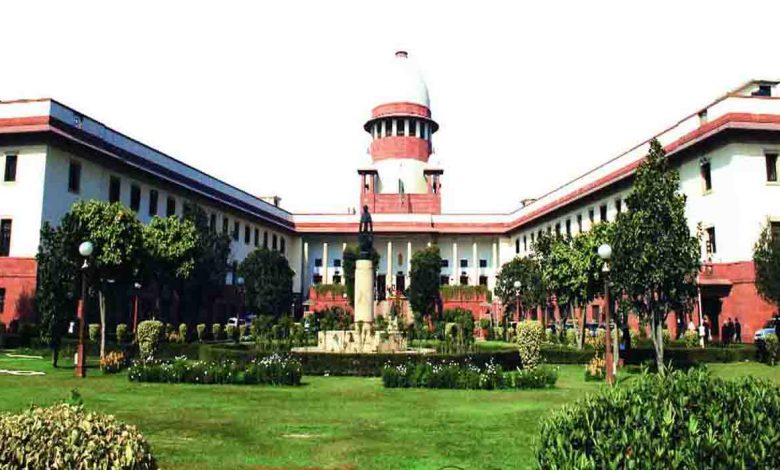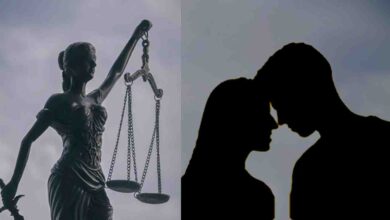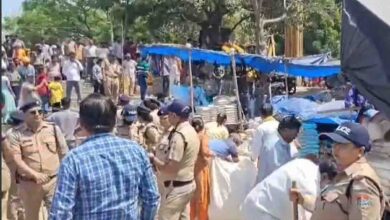SC reserves order on Pegasus snooping

Tuesday, 14 September 2021 | PNS | New Delhi
Court gives Govt 2-3 more days as it refuses to file detailed affidavit over security issue
After the Centre’s refusal to field a detailed affidavit in the Pegasus snooping scandal, the Supreme Court on Monday said it will pass an interim order in the matter soon.
Chief Justice NV Ramana told Solicitor General Tushar Mehta that the interim order will come in two-three days and the Centre can re-think on filing a detailed affidavit before that time.
“We are reserving order. We will pass some interim order. It will take two-three days. If you have some re-thinking on this, you can mention the matter before us,” the bench, also comprising justices Surya Kant and Hima Kohli, told Mehta.
“You (Solicitor General) have repeatedly been saying that the Government does not want to file an affidavit. We also do not want any security issues to be put before us. You say that a committee will be formed and the report will be submitted… We have to look into the whole issue and pass an interim order,” the bench said, adding, “Mr Mehta, you have been beating around the bush and that is not the question here”.
The petitions before the courts are related to reports of an alleged snooping by the Government agencies on eminent citizens, politicians and journalists by using Israeli firm NSO’s spyware Pegasus. On the last date of hearing, the SC suggested that the Government might consider filing an affidavit on the limited question if the phones of such persons were “tapped.”
During the hearing, Mehta told the bench that the Government has “nothing to hide” and that is why the Centre has on its own said that it will constitute a committee of domain experts who will look into these allegations. Mehta told the bench that report of the committee of domain experts will be made available to the apex court.
The Solicitor General said the issue whether a particular software is used or not by the Government cannot be a subject matter of public discourse as it has its “own pitfalls” and it would be better if the target groups, like terror outfits, does not know what is being used to combat their activities.
“The insistence that it must come in public domain, please appreciate the harm it may cause. Suppose, I say this particular software I am not using, it would alert all potential targets. It can be terror groups, it can be any other groups. If I say yes, I am using it, there would be different consequences,” he said.
“Your lordships are aware that every technology has its own counter technology to protect the system from being examined by the security agencies. Therefore, the only distinction is instead of the petitioners insisting that everything must come in public domain by way of an affidavit, I am saying let the experts go into it and place it before your lordships,” Mehta told the bench.
The apex court told Mehta that it had already made clear that it did not want the Government to disclose anything which compromises national security. On September 7, the apex court had granted more time to the Centre to decide on filing a further response on the petitions after Mehta had said that due to some difficulties he could not meet the officials concerned to take a decision on the filing of the second affidavit.
The Centre had earlier filed a limited affidavit in the top court saying the pleas seeking an independent probe into the Pegasus snooping allegations are based on “conjectures and surmises or on other unsubstantiated media reports or incomplete or uncorroborated material”. In its limited affidavit filed in the court, the Centre had said the position on the issue has already been clarified in Parliament by Information Technology Minister Ashwini Vaishnaw. With a view to dispelling any wrong narrative spread by certain vested interests and examining the issues raised, the Government will constitute a committee of experts, it had said.
The top court, while issuing notice to the Centre on the pleas on August 17, had said that it did not want the Government to disclose anything related to the national security and had asked the Centre what is the “problem” if the competent authority files an affidavit before it on the issue. “Our considered response is what we have respectfully stated in our last affidavit. Kindly examine the issue from our point of view as our affidavit is sufficient,” the law officer had told the bench, adding, “The Government of India is before the highest court of the country.”
Mehta had said if the Government of any country divulges information about which software is used and which is not used, then those involved in terrorist activities may take preemptive measures.






